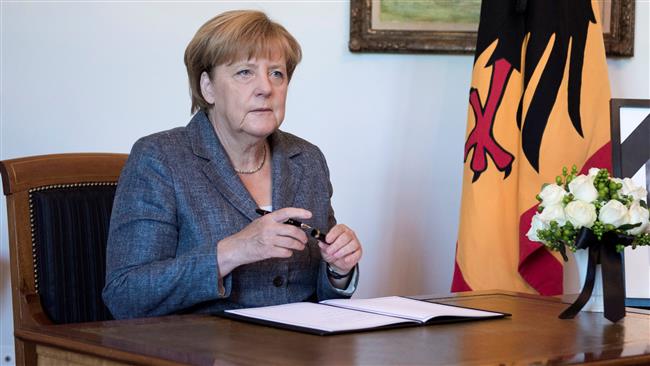
RNA - Frank-Juergen Weise, the head of Germany’s Federal Office for Migration and Refugees (BAMF), made the announcement in an interview with the Bild am Sonntag newspaper on Sunday, saying, “We’re preparing for 250,000 to 300,000 refugees this year.”
Weise said if the number of the people arriving in Germany exceeded the estimated figure, his organization would come under pressure, adding, however, that such a scenario would be unlikely.
Reports said Germany registered some 1.1 million refugees last year, a figure that Weise contested in his interview.
“We’ll present the exact number soon but it's certain that less than one million people came to Germany last year,” he said.
Weise said that 70 percent of the refugees who had entered the European country were fit for employment but the majority of them had to be dependent on basic social security provision before landing jobs.
The German official said it would take a lot of time and a money to have the newcomers integrated into the labor market.
.jpg)
Asylum seekers sleep in a tent as they wait to register at the State Office of Health and Social Affairs registration center in Berlin, Germany
The refugee arrivals will be coming at not a perfect time; anti-refugee sentiments are raging in Europe and Germany, in particular, as the country is reeling from acts of terror reportedly by refugees who had arrived in Germany as asylum-seekers.
On July 24, an attacker reported to be a Syrian refugee detonated a bomb near a music festival in the southern town of Ansbach, killing himself and injuring a dozen others.
On the same day, another alleged Syrian refugee attacked several people with a knife in a town near Stuttgart, killing one person and injuring two others.
On July 18, an alleged Afghan refugee injured at least four people with an ax on a train in the city of Bavaria.
The refugees arriving in European countries are mostly from crisis-hit countries in the Middle East and North Africa.
Meanwhile, a poll for the Bild am Sonntag newspaper showed on Sunday that 50 percent of Germans are now against Merkel remaining in power.
Half of the 501 people questioned in the Emnid poll for the newspaper were against Merkel staying in office for a fourth term after the 2017 election.
Only 42 percent wanted her to remain.
In November, the last time Bild am Sonntag commissioned a survey on the issue, 45 percent had wanted Merkel to remain at the helm of the country and 48 percent wanted her to leave.
The number shows a 5-6 percent change of heart among the Germans in the past nine months.
The paper linked Merkel’s so-called open-door refugee policy, which has allowed hundreds of thousands of asylum seekers from the Middle East, Africa and elsewhere into Germany, to the alteration in the chancellor’s popularity.

This photo, taken on January 27, 2016, shows refugees lining up next to a tent at the State Office of Health and Social Affairs (LAGeSo) in Berlin, Germany.
The head of Germany’s Federal Office for Migration and Refugees (BAMF), Frank-Juergen Weise, earlier told the newspaper that he expects a maximum of 300,000 refugees to arrive in Germany this year.
Merkel, asked about her plans for the 2017 election in an interview with regional newspapers published on Tuesday, said, “I will comment on that at the appropriate time. I’m sticking to that.”
Her policies toward the refugees has angered a section of the German society, who link recent acts of terror in the country to the asylum-seekers arriving in search of a better life.
111/847/E